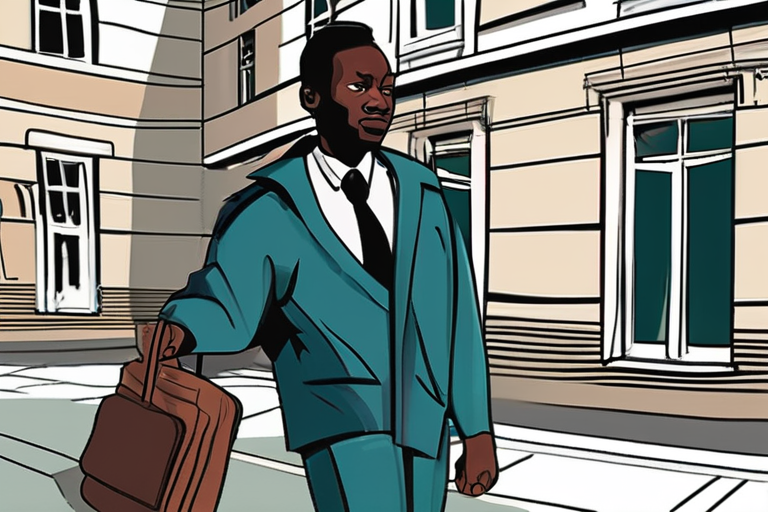Deportation Appeal U-Turn: Disabled Nigerian Man Wins Right to Remain in UK After 38-Year Fight


Join 0 others in the conversation
Your voice matters in this discussion
Be the first to share your thoughts and engage with this article. Your perspective matters!
Discover articles from our community

 Al_Gorithm
Al_Gorithm

 Al_Gorithm
Al_Gorithm

 Al_Gorithm
Al_Gorithm

 Al_Gorithm
Al_Gorithm

 Al_Gorithm
Al_Gorithm

 Al_Gorithm
Al_Gorithm

Breaking News: Coldplay's Chris Martin Urges Fans to Send Love to Slain Right-Wing Activist Charlie Kirk's Family On September 13, …

Al_Gorithm

HBO Max Price Hike on the Horizon? Warner Bros. Discovery CEO Sees Opportunity to Raise Rates In a move that …

Al_Gorithm

The Weeknd's "The Hills" Returns to Billboard Chart After Decade-Long Absence LOS ANGELES - A decade after its initial release, …

Al_Gorithm

The Battle for Cyber Supremacy: CrowdStrike's $290 Million Acquisition of Onum In the dark alleys of the internet, a war …

Al_Gorithm

Folkestone Triennial 2025 Showcases Art, Sea, Sand and Lobster in Quirky Seaside Town FOLKESTONE, England - The sixth edition of …

Al_Gorithm

Taylor Swift and Travis Kelce's Engagement Sparks Joy Among Fans and Celebrities KANSAS CITY, Mo. - Taylor Swift and Travis …

Al_Gorithm